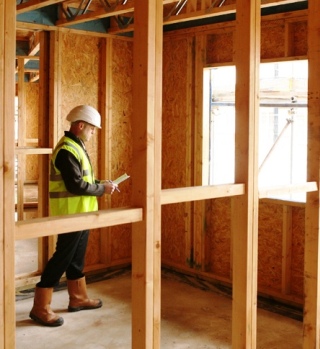BWF Chief Executive Iain McIlwee spoke to the Forestry Stewardship Council (FSC) on why wood windows are enjoying a resurgence against PVC-u and what the Wood Window Alliance has been doing for the future of the sector.
A sustainable market for wood windows
It might surprise some people that timber windows are enjoying a resurgence of interest in the UK, with the sterling share of the windows housing market enjoyed by wood and wood composites doubling from 12% in 2000 to 23% in 20141.
 The figures reflect considerable work by the industry to move away from selling products on cost alone to selling quality, performance and sustainability – fully factory-finished double or triple-glazed windows and innovations in coatings and materials have supported this evolution. But the figures also reflect the determination of the Wood Window Alliance (WWA), representing many of the major manufacturers, to set the bar high and to provide authoritative evidence to support ambitious claims that factory-finished timber windows made to WWA standards don’t just look good, they last longer, offer better value and are kinder to the environment, too.
The figures reflect considerable work by the industry to move away from selling products on cost alone to selling quality, performance and sustainability – fully factory-finished double or triple-glazed windows and innovations in coatings and materials have supported this evolution. But the figures also reflect the determination of the Wood Window Alliance (WWA), representing many of the major manufacturers, to set the bar high and to provide authoritative evidence to support ambitious claims that factory-finished timber windows made to WWA standards don’t just look good, they last longer, offer better value and are kinder to the environment, too.
Apart from aesthetic considerations and repair options, wood windows offers considerable environmental advantage. This was of particular interest to social housing clients, but there was no good evidence to support the sustainability claim, and worse was to come when the PVC-u industry signalled its intent to take even this ground by starting a well-publicised recycling campaign and putting out the message that you don’t have to cut down a tree to make a PVC-u window.
Sustainability is a big issue for us
This is where the WWA stepped in. From the beginning, one of the cornerstones of membership was the need to offer timber certified as sourced from sustainably managed forests. This was crucial to the establishment of a robust sustainability story, particularly in the context of the development of the low CO2 message and the important LCA (Lifecycle Assessment) study. Take away the proof of sustainable sourcing and you take away both the idea of a renewable resource and the benefit of the carbon sequestered in the forest.
One of the big changes in the UK timber industry in recent times is that, thanks to certification schemes like FSC, better practice, government initiatives and industry marketing campaigns, its image has undergone an extraordinary change from bad guy (cutting down trees, deforestation, illegal logging) to good (a natural, renewable low carbon resource playing an important part in mitigating climate change).
Is sustainability an issue for our customers?
For many customers, sustainability is still not top of the list. But, if you want to do business with government, local authorities, more enlightened developers and more sophisticated homeowners, it is a must. It’s a requirement of PQQs for the major buying groups, an entrée to the bigger development sites and it makes a contribution to BREEAM points.
In the home improvement market, where we often sell windows and doors directly to homeowners, we are selling an aspirational product – a ‘dream’, if you like – mainly to well educated women. For them, sustainability is assumed; it is a ‘hygiene factor’, and they have become familiar with the FSC logo in a range of applications, from paper to garden furniture.
Sustainability and the Heriot Watt University Whole Life Analysis report2
This report, commissioned by the WWA and led by Dr Gillian Menzies, was published in 2013. It looked at two major aspects of a window’s life: expected service life (Service Life Planning) and environmental impacts (Life Cycle Assessment). The results of the Service Life Planning study were derived by applying design, manufacturing and maintenance factors to an established Reference Service Life, in accordance with ISO 15686-8. It showed that timber frames made to WWA specifications could be expected to last twice as long as comparable PVC-u frames, around 60 years; while modified (e.g. Accoya™) and aluminium-clad timber frames could be expected to last significantly longer.
The extended service life of WWA specification frames, together with the CO2 benefit of sustainably sourced timber, contributed to a convincingly superior set of LCA results. The study showed that, taking into account all aspects of materials production, conversion, transport, maintenance and disposal, all WWA timber-based frames (timber, modified timber and aluminium-clad timber) have a negative GWP (Global Warming Potential) over 60 years and that using a WWA timber frame instead of a comparable PVC-u frame will save 160kgs CO2e over 60 years – around one and a half tonnes of CO2e in a typical house.
The LCA looked at a number of end-of life scenarios and found that wood was consistently better than PVC-u, whatever proportion was recycled, as well as demonstrating that frames made from sustainably sourced timber have fewer environmental impacts than those made from PVC-u.
Sustainability and the future for wood windows
With the renewed emphasis on climate change and the growing acceptance that we have to use the earth’s resources more wisely, sustainability won’t be a luxury, it will become a requirement for doing business. And sustainability will remain at the heart of the continued resurgence of the UK wood window industry.
1 The wood and aluminium/timber composite window markets in Great Britain.
Interim report on the markets in housing, Palmer Research, 2015
2 Whole Life Analysis of timber, modified timber and aluminium-clad timber windows, Heriot Watt University, Edinburgh, 2013